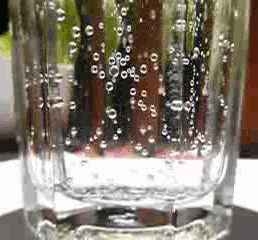The Importance of Water- 10 Reasons to Stay Hydrated
Our bodies are composed of about 60% water, yet many of us are drinking much less than the required amounts to keep our bodies functioning correctly (2-3 litres per day). This is one of the most important things I stress to my patients. Proper hydration is an essential part of living and maintaining our body’s equilibrium. Without enough water our bodies will not function as well as it should, and in many cases our body will even begin exhibiting negative side effects due to its lack of hydration.
Ten Reasons To Stay Hydrated
-
Imbalance of Body Temperature
Your body needs water in order to regulate your temperature. Without enough of it your body will not be able to cool and heat itself when needed. For example, low sweat production due to insufficient water intake can cause you to overheat when out for extended periods in the sun or during overzealous exercise sessions. -
Headaches and Cognitive Functions
When you do not give your body enough water and you start to dehydrate, your brain will not be functioning at its best. Headaches are one of the most common symptoms of lack of hydration. This can also lead to a significant drop in concentration. -
Joint Pain and Muscle Spasms
Water lubricates the body’s tissues and joints. Without enough water your joints become stiff, inflexible and prone to muscle spasms or cramps. -
Reduced Muscle Mass
The more water you have in your system the easier it is for your body to carry nutrients to your muscles. Lack of hydration leads to weaker muscles and less endurance. -
Skin Issues
Poor hydration can cause dry skin and a dull complexion. Loss of skin elasticity and premature wrinkles can also occur. -
Bad Breath and Dry Mouth
Lack of water may decrease the amount of saliva your mouth produces. The purpose of saliva is to wash bacteria and food particles out of your mouth. Low amounts of saliva mean that more food particles and smelly bacteria will dry inside your mouth and coat your teeth. This will cause your mouth to become dry and your breath to become less than fresh. -
Reduced Urination
Initially, this may not sound like a negative with our busy lifestyles, but urination is one of the body’s primary ways of ridding itself of toxins. When your body does not get rid of all of the toxins that get into our system, it can lead to internal diseases and illness, particularly with the kidneys and bladder. -
Constipation
Lack of fluids can cause dryness in the intestinal tract which will prevent the easy flow of your bowel movements. Consistency of your stool can become hard making it difficult to pass. -
Weight Gain and Hunger Pains
The vast majority of the time what we assume is hunger pains is actually our bodies demand for water. When we continuously reach for a sandwich instead of a glass of water when we feel “hunger pains” it has a negative impact on our waistline. Lack of water can also hinder your metabolism, which converts your food to energy, by slowing down the rate in which it produces energy. -
Dehydration
When you feel thirsty you have already lost enough water that your body is sending out an S.O.S. for hydration. Dehydration leads to fatigue, dizziness, headaches, irritability and loss of skin elasticity. Severe or extended periods of dehydration can lead to gall-bladder issues and other chronic health problems.
